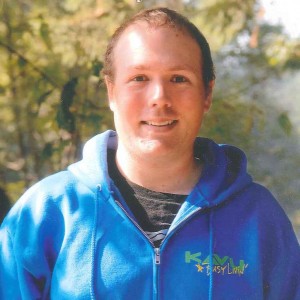Name: Nicholas Sean Meltzer
Alias: Nick
Where were you born and where do you call home?
I was born and raised in the great state of Maine, but spent eight years in Vermont before coming to Oregon. For better or worse, Vermont has stolen my heart, so it’s where I like to call home.
If you could plan the perfect holiday, what would it be?
Some friends and I joked, after seeing the quote in a blog, that “our vacation is your worst nightmare.” We like vacations that get us outside in remote wilderness places, far away from the creature comforts of society. We want to be doing the active sports we love—often until, or well past, dark. Then we want to sleep on the ground outside, wake up and do it all over again. There’s something about these kinds of trips that are revitalizing and give you a new found appreciation, and passion for things. You always come back refreshed and ready for whatever life throws at you.
In which graduate program are you enrolled?
I’m in my second year of a Masters in Community and Regional Planning. Officially, my area of concentration is Community Development, but unofficially I like working on projects that involve local food systems, sustainable transportation, and rural communities.
What Community Service Center program(s) are you working with?
Primarily, I’m working with CPW. I’ve done work with OPDR in the past, and my exit project is involved with the EDAUC.
◊ Community Planning Workshop (CPW)
◊ Oregon Partnership for Disaster Resilience (OPDR)
◊ Economic Development Administration University Center (EDAUC)
Favorite food?
Is it too cliché to say pizza? Pepperoni. Or homemade mushroom and sausage.
What are some of the projects you have worked on with the Community Service Center (CSC)?
This past term, I worked with the OPDR developing a climate vulnerability assessment for the cities of Eugene and Springfield. It involved completing a sector-by-sector assessment (electricity, transportation, drinking water, wastewater, public health, etc.), to determine how “adaptive” those sectors are to natural disasters and climate change impacts. This gave the cities a tool to prioritize opportunities for improved resiliency. My exit project involves determining the economic impact of mountain biking in Oakridge, Oregon. I’m working on that project with Bob Parker, the principal of the University of Oregon’s Economic Development Center.
What project are you currently working on with CPW?
Currently, I’m managing a sustainable transportation project in Ashland, Oregon for the Community Planning Workshop (CPW). Ashland is a city of approximately 20,000 people, but get 400,000 visitors a year due to the Oregon Shakespeare Festival. As one can imagine, this leads to a number of downtown parking and circulation issues. We’re analyzing the best policy options for managing parking & circulation demand, as well as evaluating bike and pedestrian improvements outlined in their Transportation System Plan.
What are some of the outcomes are you hoping to gain when your project ends?
We had our kick-off meeting last week, and both the mayor and steering committee set high expectations, which is exciting for me, and I hope my team. Ashland wants to be a leading community in sustainability, so they’re open to innovative ideas that maintain the vitality of their downtown. So, outcomes? A good process, policy options both the steering committee and city council are supportive of, ideas that push the envelope, and a tight-knit team by the end.
How does your involvement with the Community Service Center relate to or inform your education?
It’s been part of the foundation of my learning. I’m a big advocate of experiential education, and CSC gives graduate students the unique opportunity to reach in and get your hands dirty. What we learn in the classroom we get to apply though projects with the CSC. Where else can you earn a Masters and say you’ve already been a consultant on 2-3 planning projects for paying clients?
What advice would you give to your younger self just beginning the CSC program?
Lean in to the discomfort. Just make sure you don’t fall over.